I Will Not Kick That Ladder
By Michel Faber
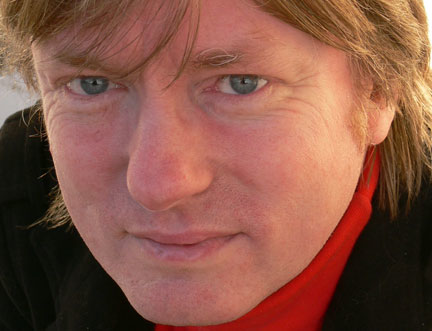
In 2018, we commissioned 51 authors from 25 countries to write essays exploring ideas about freedom for The Freedom Papers, a publication produced in partnership with Gutter Magazine. Read on for Michel Faber's essay, and visit guttermag.co.uk to purchase a copy of The Freedom Papers.
In the early 1980s, I was one of immigration’s failures. Dutch by birth, I’d been granted “permanent resident” status in Australia, where I busied myself being an unemployed fringe-dweller and unpublished writer. I had dreams of producing a grand Victorian novel called The Crimson Petal and the White. In the meantime, I was living in shabby shoebox flats and experiencing humiliations like police busting in and inspecting my pale spotless arms for needle punctures. Good thing they didn’t know about my prodigious shoplifting.
My parents were economic migrants, I suppose. They weren’t fleeing persecution or war, unless you count World War II, which haunted them. They had too many unhappy memories in Holland and they had kids from previous marriages they wanted to leave behind, and besides they’d heard that there was good money to be made down under. “We thought you’d get a better education,” they told me when I was old enough to ask why we’d come.
In 1981, I tried to emigrate to Britain but returned to Melbourne within weeks. All the work on offer in London seemed to be full-time and I wanted the bulk of my days free to create my Art. At least in Melbourne I’d be eligible for the dole, and I knew how the system worked. And, if the government started breathing down my neck, I could always study for some profession that would allow me to pick the hours that suited me. Nursing, maybe?
I didn’t have an Australian passport; I was always a Dutch citizen, but Australia was very welcoming to me nevertheless. Education was free and rent was cheap. I never even thanked Safeways for all the groceries I stole before my second wife, Eva, persuaded me to join the bourgeois ranks of those who pay for the stuff they need.
In 1993, Eva decided she wanted to live in Scotland. We had no family connections and no work lined up; Eva merely decided that Tarrel Farm on the north-east coast of Ross-shire was the most beautiful place on earth, so off we went. Eva’s children attended the local schools in amongst all the little Scots, while I – still an unpublished writer, working part time as a care assistant in a nursing home – holed up on the farm hatching Under The Skin.
A few years later, a short story of mine won the Macallan/Scotland On Sunday prize. How did I, a Dutch national who’d lived most of his life in Australia, qualify to enter this competition sponsored by a Highlands whiskey firm and a Scottish newspaper? Well, the organisers wanted to foster a conception of Scottish literature that went beyond the parochial. They adopted the phrase “Scottish by formation” to embrace any writer who had chosen to live in Scotland long-term.
After winning that prize, my career took off, with the help of Edinburgh-based publishers Canongate. By the time my last novel The Book Of Strange New Things won both Scottish Fiction Book Of The Year and Book Of The Year at 2015’s Saltire Awards, I was aware of being nurtured by the love and support of a large community of readers, and by a nation I’d never made any formal commitment to adopt as my own. I was deeply moved, and said in my acceptance speech that although my work deals with alienation, dislocation and rootlessness, I’d never felt more Scottish. I meant it.
Just recently, after 25 years, I left Scotland and made a new home in England. Because of grief over Eva’s death, because of the extreme geographical isolation of where I’d been living, because of family reasons I don’t wish to go into. As with all the other relocations in my life, it seemed like something I could just feel free to do.
Then Brexit happened. The UK voted to leave the European Union, largely because of anxieties about the “swarm” of immigrants that was supposedly destroying the fabric of British life. At the time I write this piece, Theresa May’s preposterously craven, bumbling government is simultaneously reassuring foreigners residing in Britain that there’s nothing to worry about, and reassuring tabloid-reading bigots that the country will no longer be a haven for any smelly alien who fancies a better life. I have no idea what my future status will be.
My point? Simply that I got where I am because of freedom of movement. I got not only from A to B geographically, but evolved from a misanthropic shoplifting dole scrounger to a well-loved and respected writer whose books enhance the international reputation of my adopted country. This miracle happened because my parents fancied moving to Australia and were free to do it; because Eva and I fancied living in the Scottish Highlands and nobody said no.
If my luck holds out, the miracle will continue. I’m writing a book for children. Its aim, apart from entertainment, is to inspire youngsters to expect a kinder, more curious, more joyous, more inclusive world than the one that’s currently being forged by the Tories and the Trumps.
Yes, I know that geopolitics is complicated and there’s more unrest and mass migration than our social ecosystems can comfortably handle. But I’m not the right person to express anxieties about the threat that foreigners might pose to “my” way of life. Neither I nor my parents were ever asked to prove we’d be tortured, raped and murdered if we stayed where we were born. We never had to persuade some border guard to grudgingly let us through. I was never threatened with expulsion if I didn’t hurry up and demonstrate that I could write prize-winning books instead of sponging off the state. In theory, I can see the rationale for limiting freedom of movement. But on a deeper, more honest level, I know that such limitations are almost always imposed by people who’ve reaped the benefits of those freedoms, and now want to kick away the ladder from those coming up behind them.
I will not kick that ladder.
Copyright © 2018, Michel Faber. All rights reserved.
Supported by the Scottish Government’s Edinburgh Festivals Expo Fund through Creative Scotland.

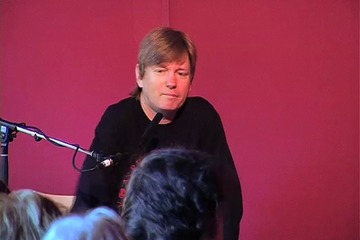
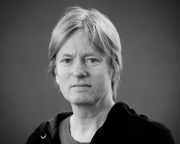
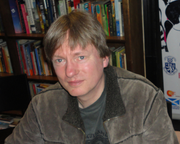
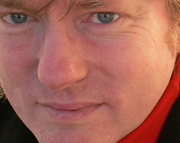
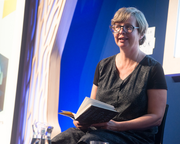
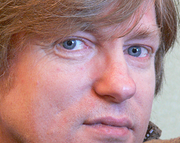
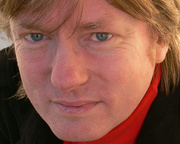
 Major new partnership with Celtic Connections
Major new partnership with Celtic Connections 

